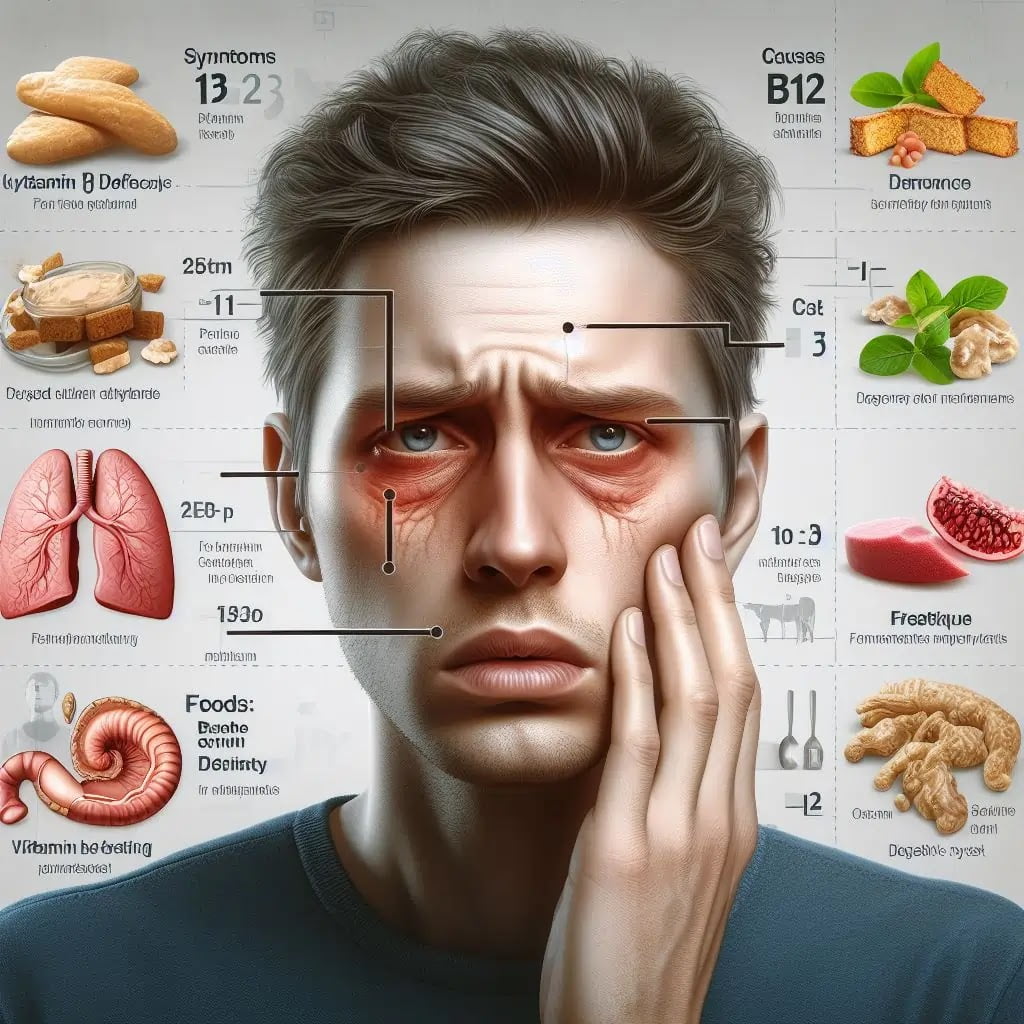
Ah, sleep—nature’s gentle and vitalizing beauty treatment for our souls and bodies. Yet, amid the bliss of restful repose, lurking dangers might cast a shadow, demanding we reassess our nighttime routines. One such shadow, the silent specter of heart attacks, can interrupt our slumbertime serenity without warning. In our journey together, we’ll illuminate the path toward safer, healthier sleep habits designed to shield your heart. Let’s embark on an exploration, equipping ourselves with the knowledge and preventive measures necessary to fend off this nocturnal nemesis. As we navigate through research, expert advice, and practical tips, you’ll be positioned to enjoy the healing benefits of sleep while keeping your heart strong and secure.
Through this article, we’ll dig into the nuances of sleep and heart health, weaving a tapestry of understanding, prevention, and self-care. Stay with us, for in the realm of sleep safety, knowledge is indeed power. Our quest begins here, where we transform potential perils into an oasis of comfort, reassurance, and proactive heart health.
Understanding the Risk Factors
As we navigate the terrain of heart health, understanding how age, gender, and family history interplay with heart attack risks is an essential starting point. Knowledge is the key to proactive health management, allowing us to anticipate, mitigate, and adapt to potential cardiac challenges more effectively.
1. Age and Gender
– Age: Aging doesn’t discriminate; it’s a process all humans experience, and as we advance through life, so do our cardiovascular risks. The aging process can contribute to a weakening of heart muscle, wear and tear on the heart valves, and stiffening of blood vessels, all conducive environments for heart complications. For men, this heightened risk typically manifests a decade earlier than for women.
– Gender: Though heart disease tends to be more prevalent in men, it’s a significant health threat for women as well. Notably, women often face unique cardiovascular challenges post-menopause, when estrogen levels drop, leading to increased risks. Understanding gender-specific risks equips both men and women with tailored preventive strategies.
2. Family History
Family history can shed light on your susceptibility to heart disease, essentially offering a glimpse into the cards you’ve been dealt. If immediate family members (parents or siblings) have a history of heart attacks or heart diseases, your risk is significantly higher. Why? A shared genetic pool can predispose individuals to heart risks, including high cholesterol, high blood pressure, or diabetes.
Moreover, the age at which these relatives developed heart disease matters. A family member diagnosed with heart issues before the age of 55 years in men or 65 years in women indicates a more urgent need for vigilance. Regular screenings and maintaining a healthy lifestyle can serve as your dual-edged sword against inherited risks.
Sleeping Positions and Heart Health

Delving into the world of sleep and heart health reveals a surprising yet crucial aspect that often goes unnoticed: the influence of sleep posture. Nighttime brings more than just rest; it orchestrates a series of physiological changes that can either soothe or stress our hearts. Understanding the importance of sleep posture and identifying the best positions not only enhances sleep quality but also supports cardiovascular health.
1. Importance of Sleep Posture
Sleep posture significantly impacts blood flow, breathing patterns, and even stress hormone levels—factors that are deeply entwined with heart health. The wrong posture can constrict vessels, impede blood circulation, and exacerbate conditions linked to heart disease, while the right position can alleviate these pressures and promote relaxation.
Furthermore, sleep posture affects how the heart pumps blood and how the body uses the energy it gains during sleep. For instance, sleeping on your side versus your stomach can influence the heart’s workload, affecting blood pressure and overall heart function. Considering the heart is an organ that continues to work tirelessly even as we sleep, ensuring that it encounters the least resistance becomes paramount for health.
2. Best Sleeping Positions for Heart Health
The quest for a heart-friendly sleep posture narrows down to the following positions, each with its benefits:
– Left Side: Sleeping on your left side is often recommended to minimize heart strain. This position decreases the heart’s compression against the chest wall, improves blood circulation, and facilitates the lymphatic system’s drainage, thereby reducing the workload on the heart. For individuals with heart failure, this posture might also aid in breathing easier.
– Right Side: While the left side tends to get its fair share of glory, sleeping on the right side can also be beneficial. However, experts generally favor the left side for its physiological advantages related to heart health.
– Back Sleep: This posture can be ideal for certain individuals, particularly those who do not suffer from sleep apnea or snoring. Lying on your back with a pillow under your knees can take unnecessary stress off the lower back, which can indirectly affect heart health. This position helps maintain the natural curve of the spine and can improve blood flow.
Each of these positions has its advantages, but remembering to adjust pillows and support can significantly enhance the benefits. For instance, elevating your head slightly can improve breathing and decrease swelling in the legs, which can be especially helpful for individuals with heart conditions.
Diet and its Impact on Heart Health
In the intricate dance of maintaining good health, diet plays a pivotal role, especially in safeguarding heart health. What we eat, and crucially, when we eat, significantly influences how our heart performs its critical functions. This article explores two significant aspects: foods to avoid before bedtime and heart-healthy late-night snacks.
1. Foods to Avoid Before Bedtime
Eating late at night, particularly within hours of lying down to sleep, can complicate heart health in various ways. The midnight munchies or late dinner feasts can unsettle your heart’s rhythm and lead to indigestion, which not only disrupts sleep but also harbors implications for long-term heart function. Let’s dive into foods you might want to avoid before bedtime to keep your heart in a healthier state.
– Foods High in Fat: Consuming fatty foods can strain your digestive system, leading to higher cholesterol levels. High cholesterol is a well-known risk factor for heart disease. Foods such as fried chicken, burgers, and pizzas can trigger digestive processes that often result in acid reflux, inflammation, and increased heart rate – all working against your heart’s restful state.
– Spicy Foods: Though adding a touch of spice might enhance the flavor of your meals, it’s best to avoid them close to bedtime. Spicy foods can lead to heartburn or acid reflux, which may cause chest pain, a burning sensation in your throat, and significantly disrupt sleep patterns. Such disruptions could contribute to poor heart health over time.
– Caffeinated and Alcoholic Beverages: Caffeine and alcohol both have stimulant effects that can lead to increased heart rate and blood pressure, causing potential heart strain and impacting sleep significantly. For a peaceful night and a healthy heart, it’s best to avoid these beverages late in the evening.
2. Heart-Healthy Late-Night Snacks
The good news is that by making informed snack choices, you can satisfy evening hunger pangs without jeopardizing heart health. The following snacks not only prevent late-night hunger but also support a healthy heart.
– Fresh Fruits: Fruits like bananas, apples or berries are rich in potassium, fiber, and antioxidants that are inherently beneficial for heart health. They help protect heart tissues from damage and can reduce the risk of heart disease.
– Nuts: Almonds, walnuts, and pistachios are not only rich in healthy fats, which can promote heart health but also have high levels of protein and fiber that can help you feel full and satisfied. However, be mindful of portion sizes, as nuts are also calorie-dense.
– Low-Fat Dairy: Greek yogurt, a little cheese, or 1% milk can provide calcium, protein, and probiotics without the excess fat and sugars found in full-fat dairy products. Calcium assists in blood pressure regulation, and the protein helps build and repair heart muscles over the course of the night.
– Whole Grains and Fiber-Rich Foods: Snacks rich in whole grains, such as oatmeal, or a handful of popcorn (without butter), can provide sustenance and support healthy blood sugar levels throughout the night. The soluble fiber in these foods can help lower cholesterol levels, reducing the risk of heart disease.
The Role of Stress and Anxiety in Our Lives

In today’s fast-paced world, stress and anxiety have become ubiquitous companions, influencing our physical and mental health, work productivity, and overall quality of life. Managing these pressures is not simply about coping with immediate symptoms but embracing a holistic approach to maintain long-term well-being. This guide explores the essential techniques for stress management and underscores the critical importance of relaxation before sleep, two pivotal strategies to navigate the intricacies of modern life with resilience and grace.
1. Stress Management Techniques: Building Your Arsenal
Stress is not always harmful; in fact, it can be a helpful motivator in moderation. However, chronic stress is a silent adversary, eroding health and happiness over time. Managing stress effectively requires a toolkit of strategies tailored to your lifestyle. Let’s explore some techniques:
Mindfulness Meditation
Mindfulness meditation promotes awareness of the present moment and trains you to respond to stress without overreacting. By focusing on your breath, observing thoughts without judgment, and grounding yourself in the current moment, you can reduce psychological distress and foster a calmer perspective.
Exercise Regularly
Physical activity is a potent stress reliever. Whether it’s a brisk walk, a yoga session, or a high-intensity interval training workout, exercise triggers the release of endorphins, the body’s natural mood lifters. Regular physical activity can significantly decrease overall stress and anxiety, promoting a healthier heart and mind.
Connect with Community
Building and maintaining social connections is crucial for mental well-being. Reaching out to friends, and family, or joining community groups can provide emotional support and alleviate feelings of isolation. A network of trusted relationships not only reduces stress but also enhances your happiness and resilience.
Prioritize Sleep
Adequate sleep is essential for emotional and physical health. It helps stabilize mood, sharpen memory, and enhance judgment. Aim for 7-9 hours of proper sleep per night, ensuring you’re well-rested to face the day’s challenges.
Cognitive Behavioral Therapy (CBT)
CBT is an effective approach that helps you think about situations from a more balanced, realistic viewpoint. Working with a therapist or using CBT-based self-help resources can equip you with skills to manage and reduce the intensity of your stress reactions.
2. Importance of Relaxation Before Sleep
Creating a relaxing bedtime routine isn’t merely about setting aside time to sleep; it’s an investment in your mental and physical health. A well-designed relaxation regimen ensures that you transition smoothly into sleep, reaping the full benefits of rest and rejuvenation.
Establish a Routine
A consistent bedtime routine signals to your body that it’s time to wind down. Rituals such as reading a book, listening to calming music, or practicing deep breathing exercises can relax your mind and muscles, preparing you for a restorative sleep.
Reduce Stimulant Intake
Caffeine, nicotine, and alcohol can disrupt your sleep cycle. Avoid these substances close to bedtime to enhance sleep quality and avoid the anxious nocturnal wakefulness that often follows.
Create a Sleep-Conducive Environment
Your sleeping environment plays a significant role in how well you rest. Ensure your bedroom is cool, quiet, and dark. Consider the quality of your mattress and pillows, as physical comfort is a major factor in achieving deep, restful sleep.
Limit Screen Time
Blue light emitted by electronic devices can suppress melatonin production, the hormone that regulates sleep. Establishing screen-free zones or using blue-light-blocking glasses can protect your sleep-wake cycle and promote more peaceful nights.
Monitoring Your Heart Health
Maintaining heart health is pivotal to longevity and quality of life. It involves proactive measures like regular check-ups and awareness of potential symptoms that might warrant medical attention. This guide explores two significant facets – the importance of routine medical evaluations for heart health and the symptoms you should never ignore.
1. Importance of Regular Check-ups
Regular health check-ups are not just routine, they are essential maneuvers in the proactive care of your heart. These health surveillance activities serve several critical functions:
– Early Detection of Conditions: Regular check-ups can identify issues before they manifest as full-blown symptoms. For instance, hypertension often shows no immediate signs but is a major precursor to heart disease. Detecting and managing such conditions early can prevent more serious health outcomes.
– Monitoring of Risk Factors: During these assessments, healthcare professionals monitor risk indicators such as blood pressure, cholesterol levels, blood glucose levels, and body mass index (BMI). Controlling these risk factors is crucial for heart health.
– Lifestyle and Behavioral Advice: Physicians can offer tailored guidance on diet, exercise, smoking cessation, and alcohol use – all of which significantly influence heart health.
– Adjustment of Treatment Plans: For individuals already managing heart conditions, regular check-ups help in assessing the effectiveness of medication and other therapies, allowing timely adjustments for optimal health benefits.
2. Symptoms to Watch Out For
While regular check-ups are crucial, paying heed to your body’s signals is equally important. Here are symptoms that demand immediate attention:
– Chest Pain or Discomfort: Often described as a feeling of pressure, squeezing, fullness, or pain in the center of the chest. This should not be ignored as it could be a sign of angina or a possible heart attack.
– Shortness of Breath: Difficulty catching your breath, especially during physical activity or while at rest, could indicate heart and lung complications.
– Unusual Fatigue: Persistent tiredness that isn’t relieved by rest or sleep, especially if accompanied by unusual sweating or cold, clammy skin, should not be disregarded.
– Heart Palpitations: Feeling a racing, fluttering, or pounding heartbeat could be a sign of arrhythmias – abnormal heart rhythms.
– Swelling in the Feet or Ankles: This can indicate that the heart isn’t effectively pumping blood, resulting in fluid buildup (edema).
Prompt medical evaluation of these symptoms is essential. Delays in diagnosis and treatment can lead to more severe complications and, in some cases, life-threatening situations.
In conclusion, Keeping your heart healthy while you sleep is vital for overall well-being. By understanding the risk factors, improving your sleep habits, and prioritizing heart-healthy choices, you can reduce the chances of a heart attack disturbing your peaceful slumber.
FAQs
1. Can sleeping position affect heart attack risk?
While there’s no definitive proof that changing your sleep position will significantly alter your heart attack risk, some studies suggest that lying on your left side can increase cardiac strain due to gravity’s effects on blood flow. However, lifestyle factors such as diet, exercise, and smoking cessation are far more impactful in reducing your heart attack risk.
2. What are common sleep disorders that could contribute to heart problems?
Sleep apnea, a condition characterized by pauses in breathing or periods of shallow breathing during sleep, is closely linked to heart disease. It can lead to high blood pressure, stroke, and heart failure. Chronic insomnia, without proper treatment, can also put additional stress on the cardiovascular system.
3. Should I avoid late-night meals to prevent heart attacks?
Eating close to bedtime can lead to weight gain and increase your heart’s workload, as digesting food requires energy. Heartburn and acid reflux, often triggered by late-night eating, can also put stress on your heart. To minimize risk, try to have your last meal a few hours before bed and avoid fatty, fried, or spicy foods.
4. How much sleep is ideal to prevent heart disease?
Quality and quantity of sleep are equally important for heart health. Most adults need 7-9 hours of sleep per night. Chronic sleep deprivation can elevate stress levels and blood pressure, increasing heart disease risks. Conversely, getting too much sleep (9+ hours) can also be associated with greater health risks including cardiovascular issues.
5. Are there specific pre-sleep habits that can reduce heart attack risk?
Establishing healthy pre-sleep habits can promote heart health. Consider incorporating relaxation techniques such as meditation or deep breathing exercises to lower stress and blood pressure. Ensuring your sleep environment is conducive to sound sleep (cool, dark, and quiet) can help improve sleep quality. Regular physical activity during the day, managing your stress, and maintaining a balanced diet can also significantly reduce the risk of heart attacks and promote good heart health overall.


